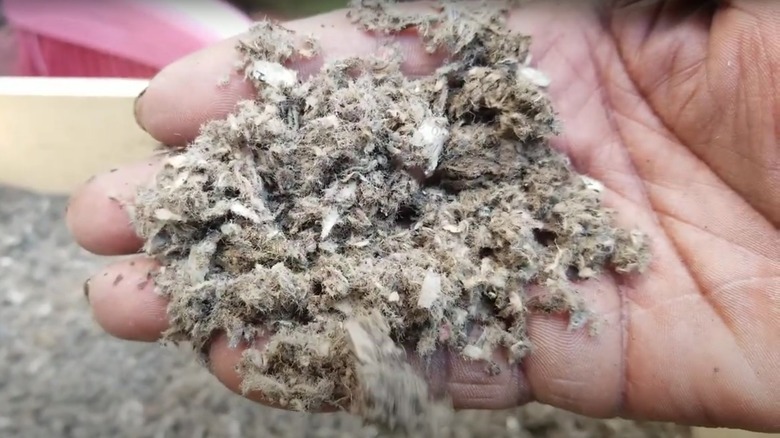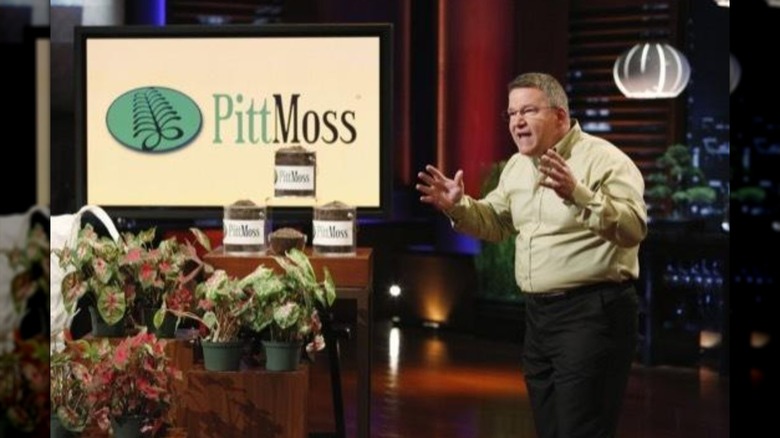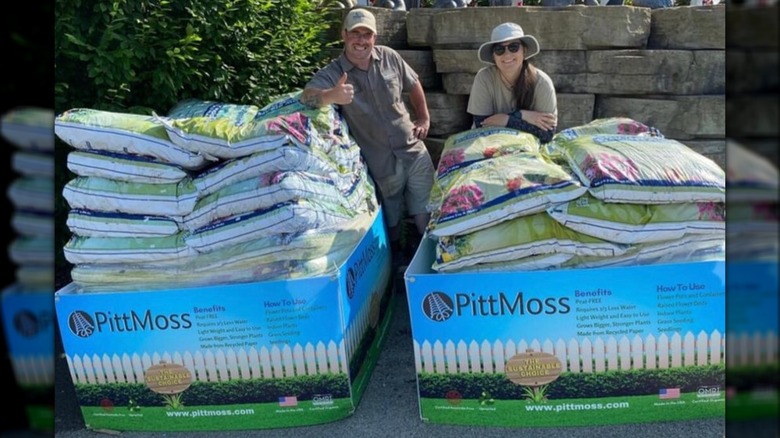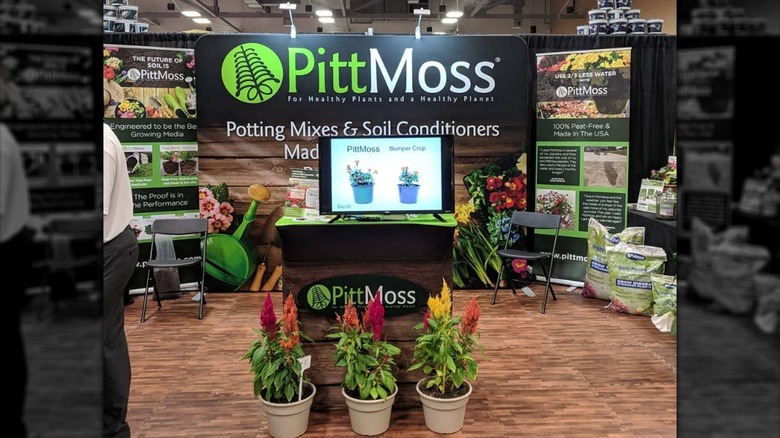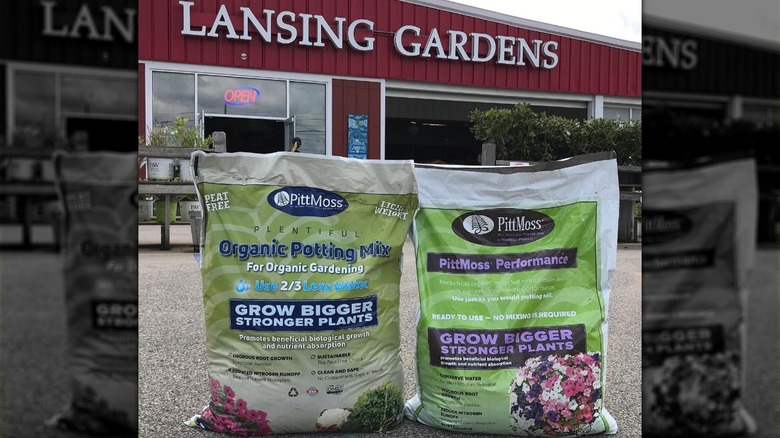Whatever Happened To PittMoss Peat Moss Alternative After Shark Tank Season 6?
We may receive a commission on purchases made from links.
Peat moss is a material commonly used in gardens and nurseries to improve soil drainage. But the problem with peat moss is that harvesting it can exacerbate climate change. "Bogs represent 5% of the earth's surface and yet they contain more carbon than all the planet's forests combined," says Oregon State University Scientist Linda Brewer, "It's a huge storage unit for carbon dioxide. As soon as we start tinkering with it, carbon is released." That's why Pittsburgh resident Mont Handley created PittMoss, a greener, cleaner, and better alternative to natural peat moss. PittMoss is made from recycled organic paper waste, such as old newspapers, bills, and computer paper. These locally sourced materials are broken down into tiny organic fibers and turned into PittMoss, a growing material that can be used to replace natural peat moss.
About a year after first launching his company, Handley participated in an episode of Shark Tank, where he pitched his business idea to potential investors. Fortunately for Handley — and the planet — three of the sharks agreed to invest in PittMoss! Here's what you need to know about the suspenseful Shark Tank episode, how the company moved forward, and where they are now.
What happened to PittMoss on Shark Tank?
In Season 6, Episode 25, Mont Handley entered the tank and wasted no time, offering 25% equity for a $600,000 investment. During his pitch, Handley made sure to note the ways in which PittMoss is superior to traditional peat moss. Firstly, it's 15 to 20% cheaperand holds moisture longer than peat moss. Another benefit Handley explains is that "[Peat moss] carries in pathogens, weed seeds, mold spores, insect larvae — ours is a completely uniform, sterile product." The product is also excellent for the environment because it reduces water waste, saves materials from landfills, and leaves peat moss in its natural environment where it can continue to absorb CO2.
The only problem with PittMoss was its total sales numbers — and the fact that production couldn't keep up. "I thought I'd be giving the product away for 8 to 12 months," said Handley, "It took us two months to get our first sales." The sharks were impressed until Handley had to admit PittMoss' total profits: only $22,000 in seven months. However, the low total was only because Handley didn't have enough equipment to keep up with the backlog of demand — roughly $168,000 in pending sales agreements. Sharks Barbara and Lori quickly declared themselves "out" on the deal, skeptical about Handley's strategy, but after some negotiations, Handley successfully left with $600,000 in exchange for a 35% stake from Robert, Mark, and Kevin.
PittMoss' business growth after Shark Tank
With $600,000 and three sharks backing him, Mont Handley was able to scale his operations to meet the growing demand for PittMoss. When the Shark Tank episode aired in 2015, Handley's original plan was to market PittMoss to commercial growers, farmers, and nurseries. While he did build some repertoire with those businesses, he quickly learned that private consumers and backyard gardeners wanted his product even more. In a follow-up episode of Beyond The Tank, aired in 2016, Handley met with one of his investor sharks, Mark, to discuss scaling up production even more so that he could provide PittMoss to distributors, who could then sell directly to consumers. With Mark's support, Handley proceeded with the distributor deal.
PittMoss officially launched its retail line in 2017 and began distributing to nurseries and greenhouses. PittMoss continued to grow its operations, building several new warehouses and processing plants. In 2021, the company declared its plans to start producing PittMoss internationally and build more factories within the United States. PittMoss also found surprising success in the legal cannabis industry; growers who use their product harvest about 12.5% more cannabis with 4.9% higher THC (via Blue Tree Allied Angels).
Is PittMoss still in business?
Yes, PittMoss is still in business! Shortly after participating in Beyond the Tank in 2016, Handley stepped down as CEO of PittMoss, but he still retains a seat on the board and an important position as the company's founder. The new CEO of PittMoss, Brian Scott, has continued to lead the company with its core values, supporting better health for plants, people, and the planet. In 2017, PittMoss received a Tibbetts Award, a national award that honors outstandingly innovative small businesses. In 2020, PittMoss estimated that it saved about 81,111 cubic feet of natural peat moss bogs and prevented 811.11 metric tons of CO2 from entering the environment.
In addition to its original PittMoss product, the company has also launched a wide range of gardening and animal caretaking supplies. Some of the new products include organic potting mixes, "peat" mixes, coco coir mixes, soil conditioners, organic fertilizers, and even small pet, equine, and poultry bedding. PittMoss also maintains active social media pages, regularly attends gardening expositions, and has been featured in dozens of popular home & garden publications.
The future of PittMoss
PittMoss still isn't being sold in stores like Home Depot, but as the brand continues to grow, it's possible that products could soon be picked up by major retailers. Until then, plenty of local gardens, nurseries, and smaller chains like Ace Hardware have jumped on board. PittMoss seems to be especially popular among natural and organic gardening communities who love that it's a sustainable alternative to peat moss. If you want to try this revolutionary substrate and fight climate change from your garden, you can check out your local gardening supply store or purchase PittMoss through their website or on Amazon.
From the very start, the sharks of Shark Tank saw how valuable Pitt Moss could be for a brighter, greener future. Handley was able to introduce PittMoss at a pivotal time in human history; as climate change becomes more concerning, small solutions like PittMoss will start to make a big difference. From a business standpoint, PittMoss certainly had some down-to-earth beginnings; now, the company has a projected revenue of about $25 million by 2025.
